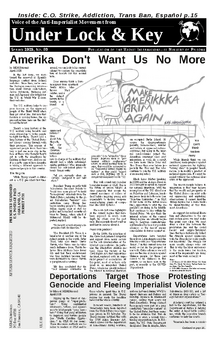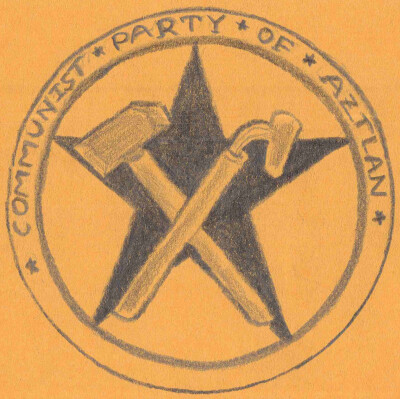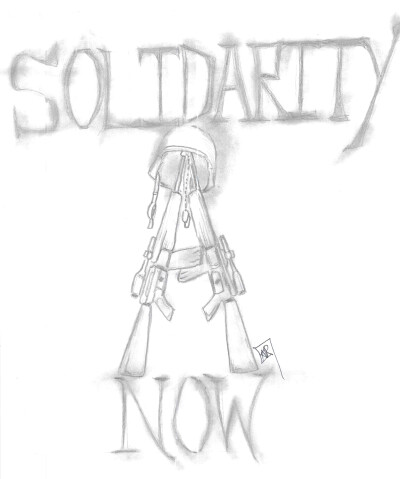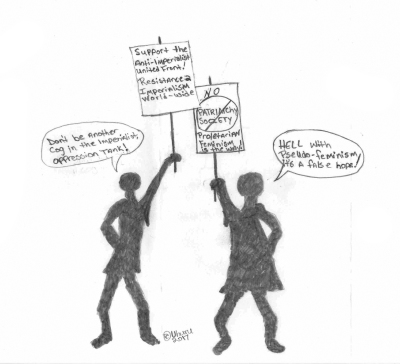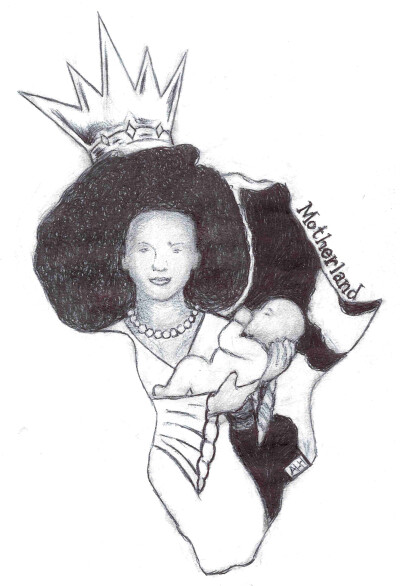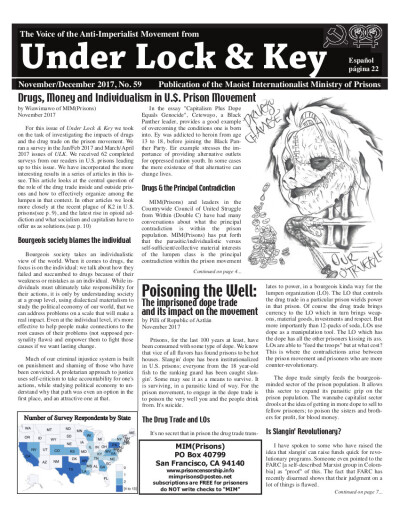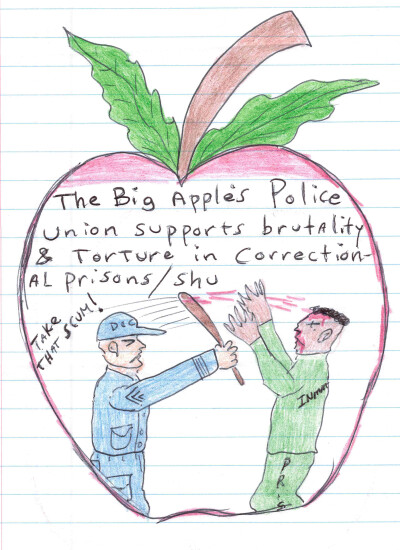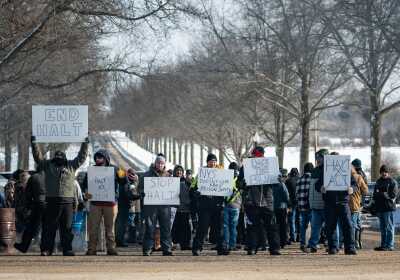
Amerika Don't Want Us No More
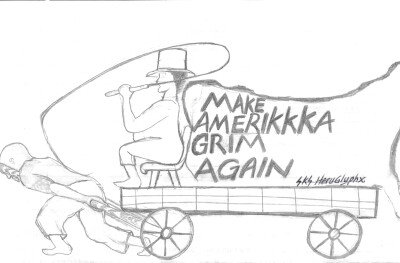
In the last issue, we mentioned the removal of Spanish-language content from federal websites. Since then, we’ve seen the Pentagon removing information about Navajo code-talkers, Jackie Robinson, Tuskegee Airmen and Japanese who fought for the U.$. in World War II from their websites.
The U.$. military helps to impose fascism on the oppressed people of the Third World when they get out of line. But now that fascism is coming home, the oppressed nations here are the first to feel the brunt.
There’s a long history of the U.$. military using benefits and even citizenship to bribe people to fight for them. There’s also a long history of the United $tates not always coming through with their promises. This erasure of oppressed people from their history is just one more slap in the face of those who thought they’d get in with the Amerikans by fighting in their wars. And we see it as a petty sign of how Amerika is taking a different approach to oppressed people in this country.
The Regime
While Trump wasn’t so different as a U.$. president first time around, we can look to his current cabinet to confirm the consolidation of fascists for this second term.
Does anyone think a Euro-immigrant from apartheid South Africa who throws Nazi salutes, and is the richest persyn in the world, is a friend of oppressed nations? How about Pete Hegseth, the guy with the Christian nationalist tattoos now in charge of the military that already had a white nationalist militia problem? Who ironically closed his self-leaked plans to bomb Yemen with:
“We are currently clean on OPSEC. Godspeed to our Warriors.”
President Trump recently told Salvadorian President Bukele to “build five more places” to hold “homegrown” criminals from the United $tates, referring to the giant Salvadorian “terrorist” concentration camp Trump has begun sending people to. Stephen Miller, deputy chief of staff for policy and homeland security adviser to Trump, when asked if Mahmoud Khalil will be deported, replied:
“Yes he will, as will anyone who preaches hate for America.”
Vice President J.D. Vance is a benefactor of another of the richest people in the world, Peter Thiel, who also funds Curtis Yarvin, who Vance says he takes much influence from. Yarvin believes New Afrikans have lower IQs and that their enslavement was thus justified because they were destined to be slaves. Yarvin is paraphrased as writing:
“He then concluded that the “best humane alternative to genocide” is to “virtualize” these people: Imprison them in “permanent solitary confinement” where, to avoid making them insane, they would be connected to an “immersive virtual-reality interface” so they could “experience a rich, fulfilling life in a completely imaginary world.”“(1)
This will sound very familiar to regular readers of ULK. This is the future of prison tablets. A slow genocide that avoids the current messiness of videos of dead babies inspiring young anti-imperialists to destroy weapons manufacturing plants of companies like Elbit Systems.
These are just some highlights of the current regime that have been exposed in much more depth by others over the past year. These people do not want us and they’re serious about it.
Peak Integration?
By the 1960s, the injustices of Jim Crow had garnered sympathy and support from many sectors for the self-determination of the internal semi-colonies (in particular the Black/New Afrikan nation). Since the victory of the Civil Rights Act, that support has declined, replaced with an imperialist project of assimilation. At this point, most of us have only lived in an integrated United $tates, which has greatly reduced the interest in national liberation on occupied Turtle Island. Of course the disproportionate poverty, homelessness, murder and torture of oppressed nations continues, but many in the internal semi-colonies joined the Amerikan consumer class post-integration as well. As a result, we have more Uncle Toms and Tio Tomas than ever before (especially the Tios and Tias who continue to join the U.$. military at increasing rates).
Black Lives Matter (peaking in 2020) and the al-Aqsa Flood in 2023 brought an uptick in support for national liberation. With the resumption of the U.$.-i$rael war on Palestine and Lebanon, breaking peace deals in both cases, opposition to what the imperialists are doing in the Middle East continues to rise within the United $tates. We also think the internal actions of the current Trump regime are already beginning to heighten contradictions and broaden the base for possible alliances as the fascist enemy consolidates its forces against us.
Deportations have targeted those from Latin America and the Muslim world so far. As the prospect of war with China advances we will also see the rise of racism against Chinese people (or those perceived to be Chinese) in this country, as we have seen in the past, as recently as the COVID-19 pandemic.
You Can’t Think Racism Away
While liberals think we can (and have) made progress against national oppression by fighting “wrong ideas” in peoples’ heads, racism is in reality a product of national oppression. It cannot be ended without the national liberation of the oppressed.
The reason people believe in integration is that they believe that the wealth and prosperity of the United $tates can exist without oppressing and exploiting other nations. It cannot. And the Trump regime has a more realistic understanding of this than most Amerikans.
As support for national liberation and alternatives to the current system grow, we must make this point very clear. We must draw a clear line between the proletarian line and the social fascist and crypto-Trotskyist lines that have historically linked the struggle against oppression with the struggle for more wealth for Amerikans. The struggle for more wealth always wins out. This is why the labor aristocracy is the main force for fascism, even if the imperialists are doing most of the work so far.
Notes:
1. Gil
Duran, 22 July 2024, Where J.D. Vance Gets His Weird, Terrifying
Techno-Authoritarian Ideas, The New Republic.
2. MIM 2005
Congress, The labor aristocracy is the main force for
fascism.
